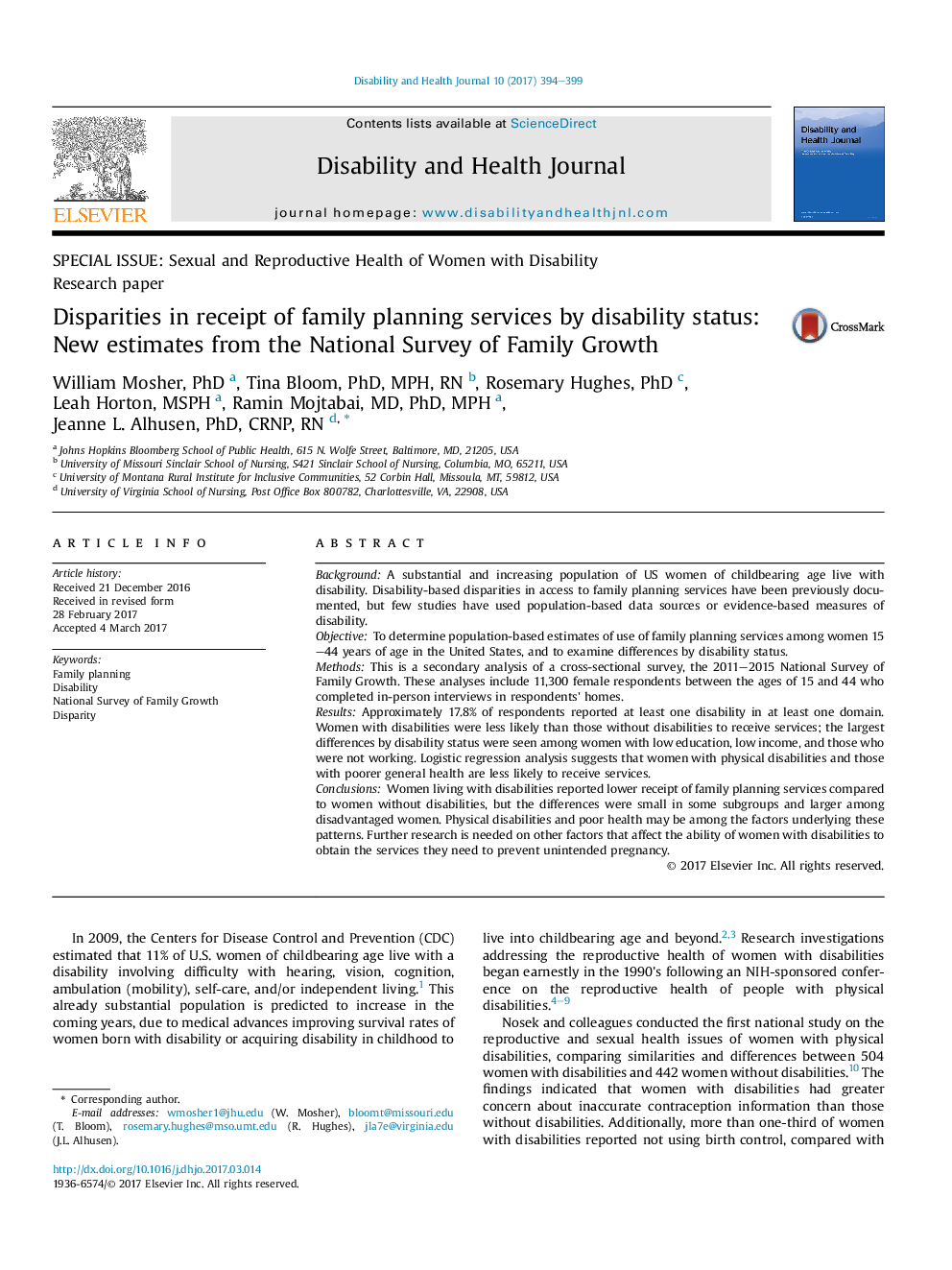| کد مقاله | کد نشریه | سال انتشار | مقاله انگلیسی | نسخه تمام متن |
|---|---|---|---|---|
| 5723254 | 1411440 | 2017 | 6 صفحه PDF | دانلود رایگان |
BackgroundA substantial and increasing population of US women of childbearing age live with disability. Disability-based disparities in access to family planning services have been previously documented, but few studies have used population-based data sources or evidence-based measures of disability.ObjectiveTo determine population-based estimates of use of family planning services among women 15-44 years of age in the United States, and to examine differences by disability status.MethodsThis is a secondary analysis of a cross-sectional survey, the 2011-2015 National Survey of Family Growth. These analyses include 11,300 female respondents between the ages of 15 and 44 who completed in-person interviews in respondents' homes.ResultsApproximately 17.8% of respondents reported at least one disability in at least one domain. Women with disabilities were less likely than those without disabilities to receive services; the largest differences by disability status were seen among women with low education, low income, and those who were not working. Logistic regression analysis suggests that women with physical disabilities and those with poorer general health are less likely to receive services.ConclusionsWomen living with disabilities reported lower receipt of family planning services compared to women without disabilities, but the differences were small in some subgroups and larger among disadvantaged women. Physical disabilities and poor health may be among the factors underlying these patterns. Further research is needed on other factors that affect the ability of women with disabilities to obtain the services they need to prevent unintended pregnancy.
Journal: Disability and Health Journal - Volume 10, Issue 3, July 2017, Pages 394-399
